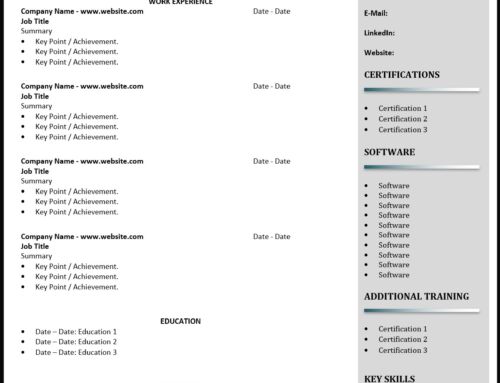Writing Effective Emails
This post covers ways in which you can write an effective email. Good writing is not just required for fiction or novels, it is required in day to day life and work, so the better you are at effective writing then the easier your life can be. These guidelines can be used in any business whether creative, arts, science or finance, but obviously you will need to make amends depending on exactly what you require from your email and the situation.
Remember that people are busy, goal-driven and generally tend to skim over details or long sections of writing. So the first thing you should consider when writing an email is: What exactly do you want to get from the email and this should be the primary focus.
- If you have actions then put them first (after saying hello of course):
- Do not put your required actions at the end. The first thing that meets the eye of the read is the subject line and the first few lines of the email – so put your actions first.
- Keep it short and to the point:
- As mentioned people are goal-driven so don’t write long emails. You are not writing a novel or short story in your work emails so keep them as short as possible. If more detail is required then consider attaching it in a document or linking to a shared doc online.
- Lead in your emails:
- This is very important – often I see emails that are vague or unintentionally asking to be led. So lead in your work and lead in your emails. For example, a while back I had a discussion with a project manager about some tasks I needed doing and the email I got back after the discussion from him was (in summary) I am not exactly sure what to do. Do not do this, lead on your tasks and even if you are uncertain, at least drive them forward. What would have been better is for him to write – This is what I am planning to do next (with a list of actions), please confirm if you wish any changes?
- Another Example: It would be great to catch up if you’re free sometime next week? Instead, lead on the discussion: Are you free to catch up next Monday or Tuesday at around 12 pm? If not please let me know the best times you can make?
- Write an Engaging Subject:
- If you put Actions for the week as the subject line this is okay – but if you put Great new Features for the week this sounds way more engaging and hopefully will draw more attention, so think of the positives and write a subject line in an engaging way.
- Keep Positive:
- People don’t like reading negativity so keep it positive and this helps create a better working environment, pushes motivation, and creates a better connection with you and the recipient. You may need to be careful here that you don’t come across as crass, but you should be able to judge what a good balance is in your emails.
- Grammar and Spell Check:
- If available in the settings, turn on auto spell check before sending an email. Also tools such a Grammarly have become really good at spell and grammar checking so consider installing them into your browser or email client so your emails always get checked for grammar/spelling before sending.
- Listen:
- Last, but certainly not least – Remember to listen and take in what other people are saying. We can often get stuck in auto-pilot, but take a few moments before replying to an email to make sure you have understood what you need to say or what is in the email you are replying to.
Finally, these are guidelines and not set in stone, so write the email for the person you are sending to. There may be subtle or big changes in how you send your emails depending on the person and situation and this are something that you yourself will know.






Leave A Comment